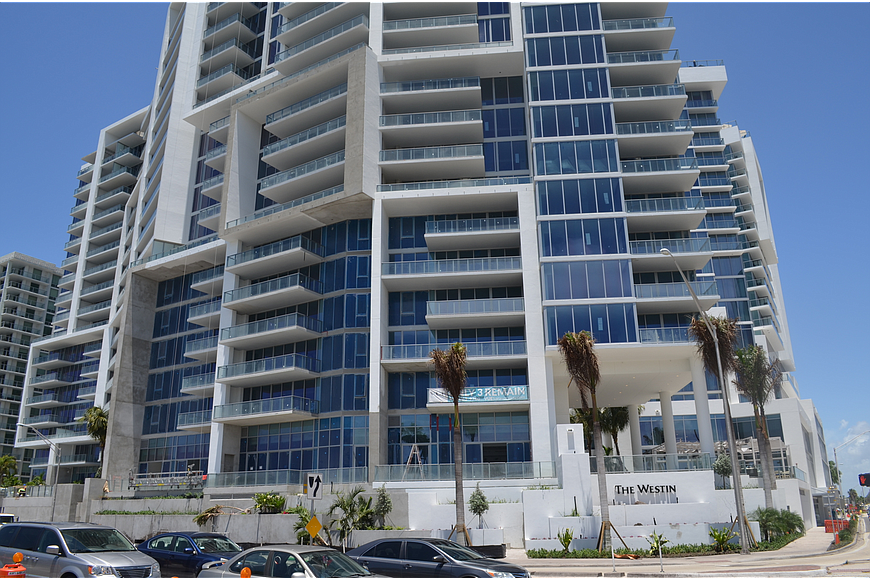- February 15, 2026
-
-
Loading

Loading

In the past four months, the city has received at least two proposals for changing the way it reviews and approves proposed developments.
One, crafted by planner Karin Murphy, is included in the proposed form-based code the city has been working on since 2013. The document, which would rewrite building rules citywide, recommends an expansion of administrative development review, a process that allows city staff to approve projects deemed to comply with pertinent regulations.
A second is crafted by STOP, a resident activist group formed in 2016 to oppose administrative review. This month, STOP submitted a proposed zoning code amendment that would greatly reduce the use of administrative review downtown, where the procedure has been in place since 2003.
A debate about administrative review has been ongoing for more than two years. Now, it appears set to come to a head, with city staff confirming a desire to address the topic in the near future. STOP plans to present its proposal at a Jan. 22 commission meeting. Staff will share its recommendations for how to proceed with the proposed form-based code at that same meeting.
STOP steering committee member Kate Lowman is optimistic about the prospects of the city seriously considering the group’s recommendation. She doesn’t expect the issue to resolve itself immediately, but she does want the city to have a discussion she believes has been put aside for too long.
“We don’t have the idea that we would go in on the 22nd, submit our zoning text amendment, get the votes and say, ‘We’re good to go,’” Lowman said. “What we’re hoping is that the commission will say, ‘We agree it’s time to talk about this.’”
Since it formed, STOP has garnered support from more than 15 city neighborhood and condominium associations. STOP argues administrative review deprives residents of an opportunity to comment directly on projects in their community. The group favors the use of public hearings, proposing a system for downtown that would require more projects to go before the Planning Board to gain approval.
“Right now, the people who live downtown basically have almost no voice in development decisions,” Lowman said. “And it’s crazy, because that’s where our biggest buildings are built; it’s where we have the greatest density; it’s where buildings are built right up against each other. These are the buildings that really need public input, and citizens deserve to be treated fairly and equally.”
Previously, city officials have pushed back against the broader criticism of administrative review. Murphy, who contracted with the city until last October to write the form-based code, called it an important tool for streamlining the development process when possible. She recommended incorporating more public input into the crafting of zoning regulations — and then allowing developers to move forward administratively if their proposals comply with the rules.
The draft form-based code recommends expanding administrative review outside of downtown, but only in some cases. One guideline: If a project is smaller than 10,000 square feet and a property’s zoning is classified as part of the natural transition from suburban to urban areas, the code would allow for administrative review.
Since October, Planning Director Steve Cover has overseen a staff review of the form-based code. Although Cover declined to address the specifics of staff’s recommendations on how to proceed, he said the Jan. 22 presentation would focus on both incorporating public input and ensuring development review isn’t overly cumbersome.
“We want to come forward to the commission with recommendations on how to improve our processes, make them more efficient and more responsive to the community,” Cover said.
Asked how staff would seek to reconcile what could be competing interests, Cover said the city wanted to establish the right thresholds for triggering various forms of public input, including public hearings and community workshops.
“There are some things that just from a common-sense view should be reviewed administratively,” Cover said. “There are other things, like major projects, where it doesn’t make sense.”
Last March, the City Commission held a special meeting to specifically discuss administrative review as the form-based code was still being written. At the time, the commission was split on the prospect of expanding administrative review outside of downtown. A majority of the board recommended against it, but Commissioner Liz Alpert expressed a willingness to reconsider her position depending on staff’s input.
Although there has been some criticism of the focus on administrative review, STOP maintains public hearings would be an effective tool for incorporating public input into proposed developments. Projects would still have to comply with the same regulations in either process, but Lowman believes residents would be more empowered in a public process. She cited community questions and concerns surrounding the downtown Vue Sarasota Bay, Embassy Suites and Epoch projects as topics that could have been addressed during public hearings.
“I can’t speculate how those issues would have been resolved, but at least they would have been discussed openly and before construction,” Lowman said in an email.
If the commission approves later this month, Cover said city staff intended to address the topic of administrative review right away — and that community input would help shape whatever recommendation ultimately prevails.
“There will be plenty of opportunities for the public and the business community to provide input,” Cover said.